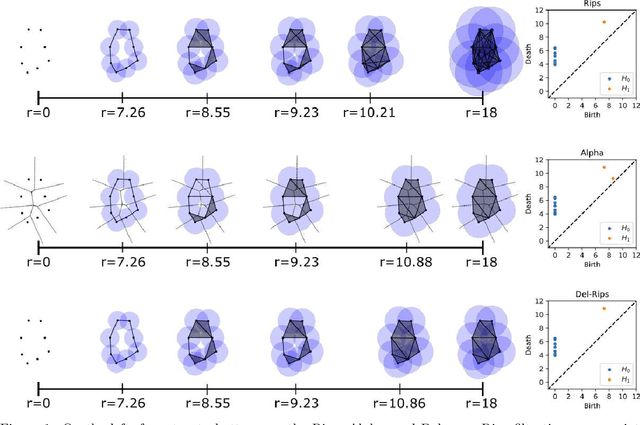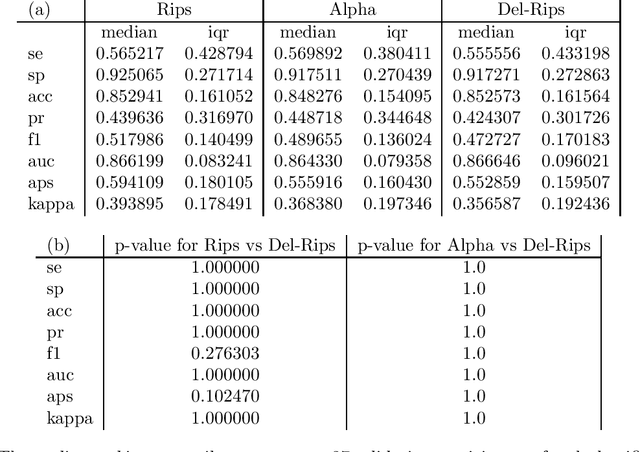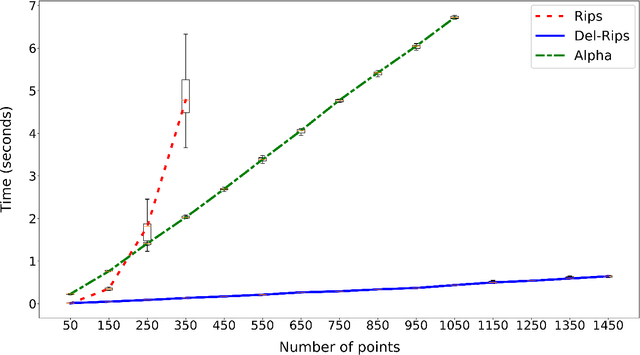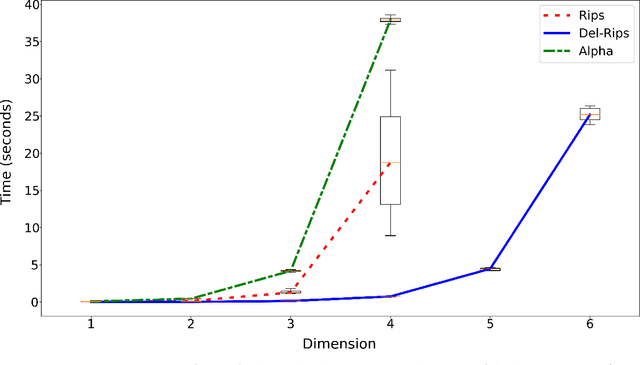Stability and Machine Learning Applications of Persistent Homology Using the Delaunay-Rips Complex
Paper and Code
Mar 02, 2023



In this paper we define, implement, and investigate a simplicial complex construction for computing persistent homology of Euclidean point cloud data, which we call the Delaunay-Rips complex (DR). Assigning the Vietoris-Rips weights to simplices, DR experiences speed-up in the persistence calculations by only considering simplices that appear in the Delaunay triangulation of the point cloud. We document and compare a Python implementation of DR with other simplicial complex constructions for generating persistence diagrams. By imposing sufficient conditions on point cloud data, we are able to theoretically justify the stability of the persistence diagrams produced using DR. When the Delaunay triangulation of the point cloud changes under perturbations of the points, we prove that DR-produced persistence diagrams exhibit instability. Since we cannot guarantee that real-world data will satisfy our stability conditions, we demonstrate the practical robustness of DR for persistent homology in comparison with other simplicial complexes in machine learning applications. We find in our experiments that using DR for an ML-TDA pipeline performs comparatively well as using other simplicial complex constructions.
 Add to Chrome
Add to Chrome Add to Firefox
Add to Firefox Add to Edge
Add to Edge